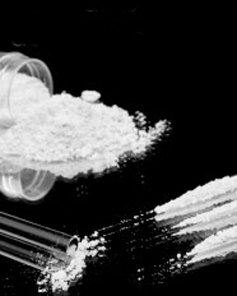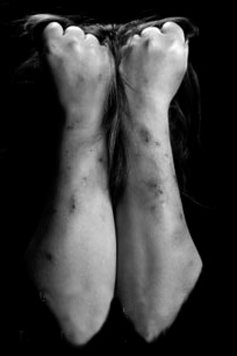PCP Drug Information

PCP first was known as a popular drug of abuse in the 1980s. Abuse of this drug began to drop off in the early 1990s. Its loss of popularity was beneficial for America and other countries because PCP can be a highly destructive drug.
The technical descriptions of this drug do not do it justice. The Drug Enforcement Administration states that this drug is a “dissociative anesthetic,” and that it distorts sight and sound and can create sedation, amnesia, and detachment from the environment and oneself.
But that clinical description misses the phenomenon of a PCP user who is having a bad reaction to the drug. A 1991 Los Angeles Times article on PCP abuse notes that the drug is dangerous “not just because of the hallucinations it induces but because it numbs pain in users and subjects them to very sudden, unpredictable swings in behavior which can sometimes include extraordinary acts of strength and violence.”
Unfortunately, two decades after PCP abuse was considered a dead issue, the drug has been seeing a comeback. PCP is now a drug that is abused in nightclubs and music venues. It is also being seen in the test results of arrestees, as in Washington DC where ten percent of the adults in the city’s justice system tested positive for the drug in 2009.
Tablets sold as MDMA (Ecstasy) may be found to contain PCP and PCP may be mixed with marijuana for smoking. PCP powder may also be mixed with other green herbs like parsley or mint. A joint of marijuana can also be dipped in a solution of PCP and the drug may be snorted in its powder form or it can be swallowed.
Statistics on Use and Hospital Visits

It’s mostly young people who abuse this drug. In 2008, more than 37,000 people needed to be cared for in hospital emergency rooms as a result of PCP abuse. The National Survey on Drug Use and Health reported in 2008 that more than six million Americans had used PCP in their lifetimes. About one percent of high school students reported using this drug in the years 2007-2009.
It is known that PCP residues store in the fatty tissues of the body, where it can be dislodged later and create flashbacks in a similar way that LSD can cause flashbacks.
PCP is Associated with Violent Damage to the Users and Others
The National Institute on Drug Abuse states that the drug’s effects include a mimicry of schizophrenia, including delusions, hallucinations, and high levels of anxiety. A person high on the drug may think he can perform acts that are physically impossible, like take a walk out a second story window.

Some of the most brutal stories of abuse of self or violence inflicted on others involve PCP. One review in the Journal of Psychedelic Drugs from 1980 reported on a number of attacks, shootings, and self-mutilation that occurred under its influence. One heavy user reported that he heard voices that told him to hurt people or commit crimes.
Those who arrive in the emergency room may be so disoriented that they are not able to tell doctors what drug they were abusing. They may also remain catatonic for days. PCP acts as a strong anesthetic so users may break bones or suffer other severe injuries without realizing it.
PCP is Also Addictive
As if the effects and the mental damage from this drug were not enough, the drug is also addictive and therefore can drive a person back to use it again even if he (or she) realizes how dangerous it is. To save this life, a thorough and effective rehabilitation service is needed.
In Narconon, addicts can find the solution they need to drug or alcohol addiction. A holistic substance abuse treatment program takes those who are addicted through a thorough detoxification and reorientation exercises, and then onto a life skills training regimen that enables people to leave the past behind and look forward to a bright new future. Graduates ordinarily restore family relationships, renew personal value systems and experience the relief of restored personal integrity. It all adds up to a new life without drugs.
If you or someone you care about is suffering from the effects of PCP abuse, contact Narconon to find a Narconon rehabilitation center near you.
Resources:
 ®
®